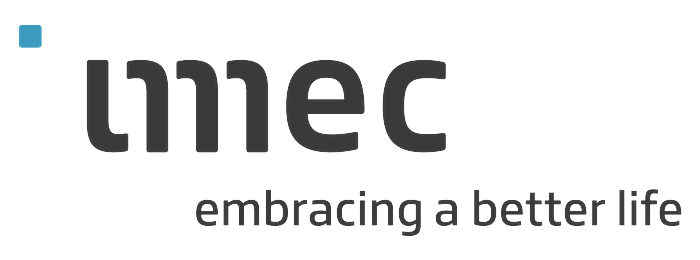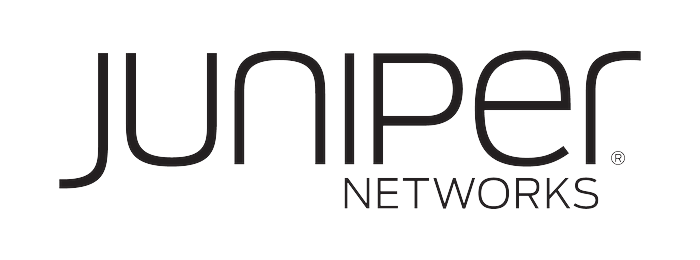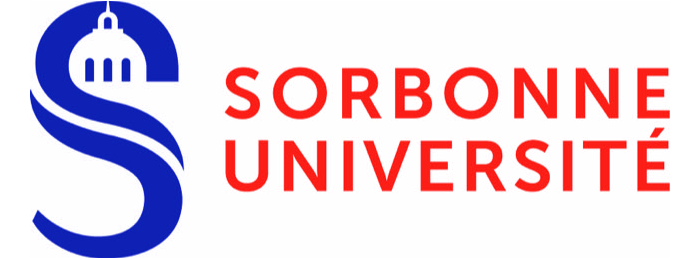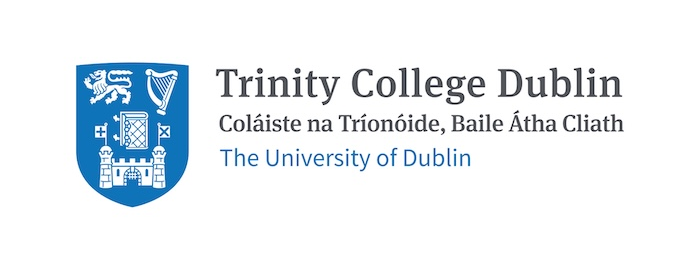
EU-US 6G R&I Cooperation
6G Trans-Continental Edge Learning
This
About 6G-XCEL
6G-XCEL will bring together a large ecosystem of researchers from the EU and US to implement elements of the DMMAI framework in their testbeds and labs. DMMAI (Decentralized Multi-party, Multi-network AI) is a reference framework for AI in 6G that will pave the way towards global validation, adoption and standardization of AI approaches. This framework will enable the federation of AI-based network controls across network domains and physical layers, while promoting security and sustainable implementations. Research on the resulting decentralized multi-party, multi-network AI (DMMAI) framework will enable the development of reference use cases, data acquisition and generation methods, data and model repositories, curated training and evaluation data, as well as technologies and functionalities for its use as a benchmarking platform for future AI/ML solutions for 6G networks.
EU Testbeds
- OpenIreland Testbed
- Patras5G/P-NET Testbed
- SLICES RI
- City Lab, Smart Highway and 5GOpen, 5G-in-a-box portable and Time Sensitive Networks (TSN) Testbeds
US Testbeds
- CCI xG Testbed
- NSF Platforms for Advanced Wireless Research (PAWR) COSMOS
Use cases
- DMMAI for 6G spectrum management
- AI enhanced resource management
-
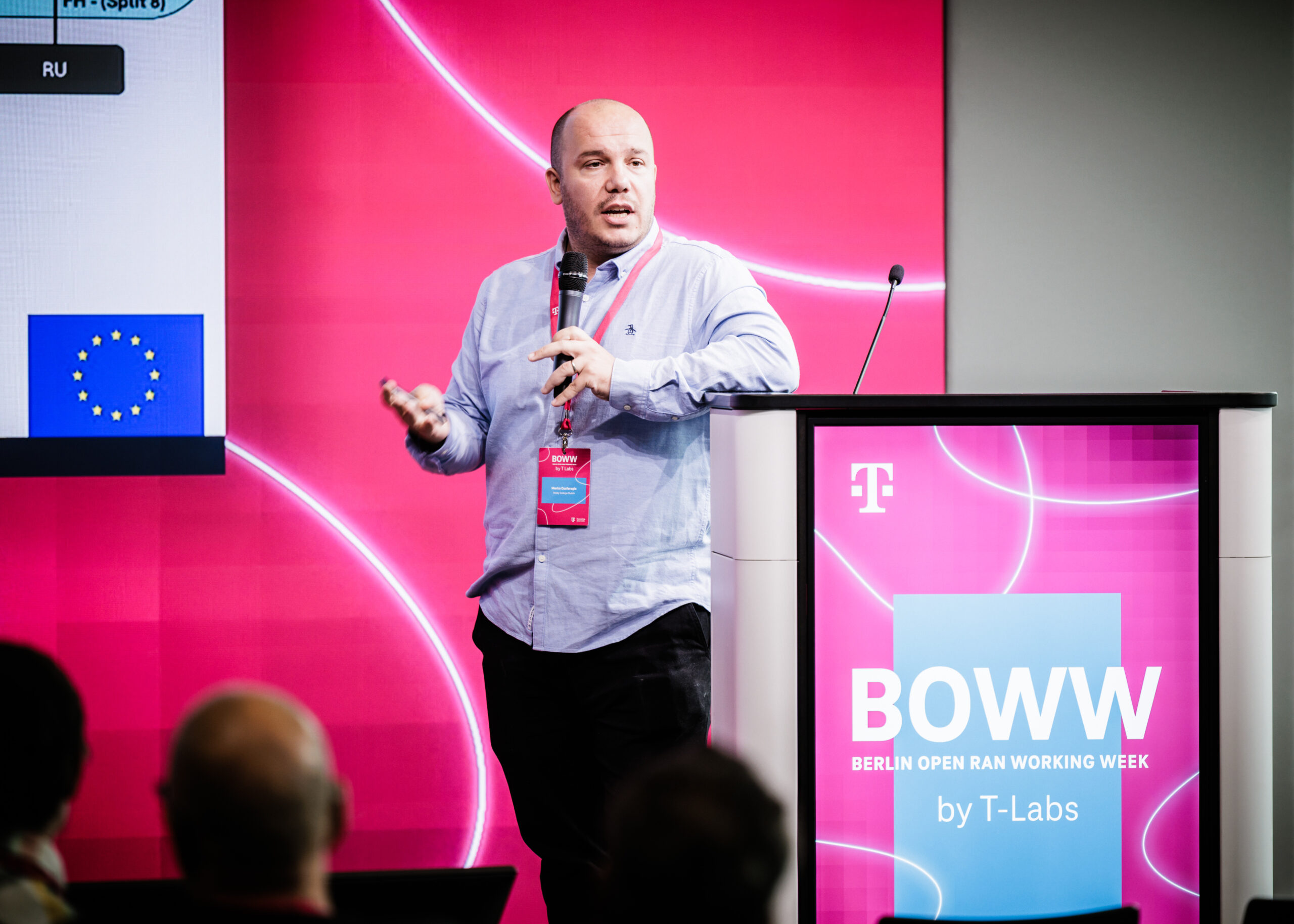
Berlin Open RAN Week 2025: Discussion on AI in Future Networks
6G-XCEL Team participated in discussion on “AI in Future Networks: Lessons from the Past, Challenges of the Present, and Opportunities Ahead”, organized by T-Labs – Deutsche Telekom. Heiko Lehmann, Merim Dzaferagic and Joao Santos were there and shared their scientific views around AI role in 6G Networks. Check Linkedin post.
-
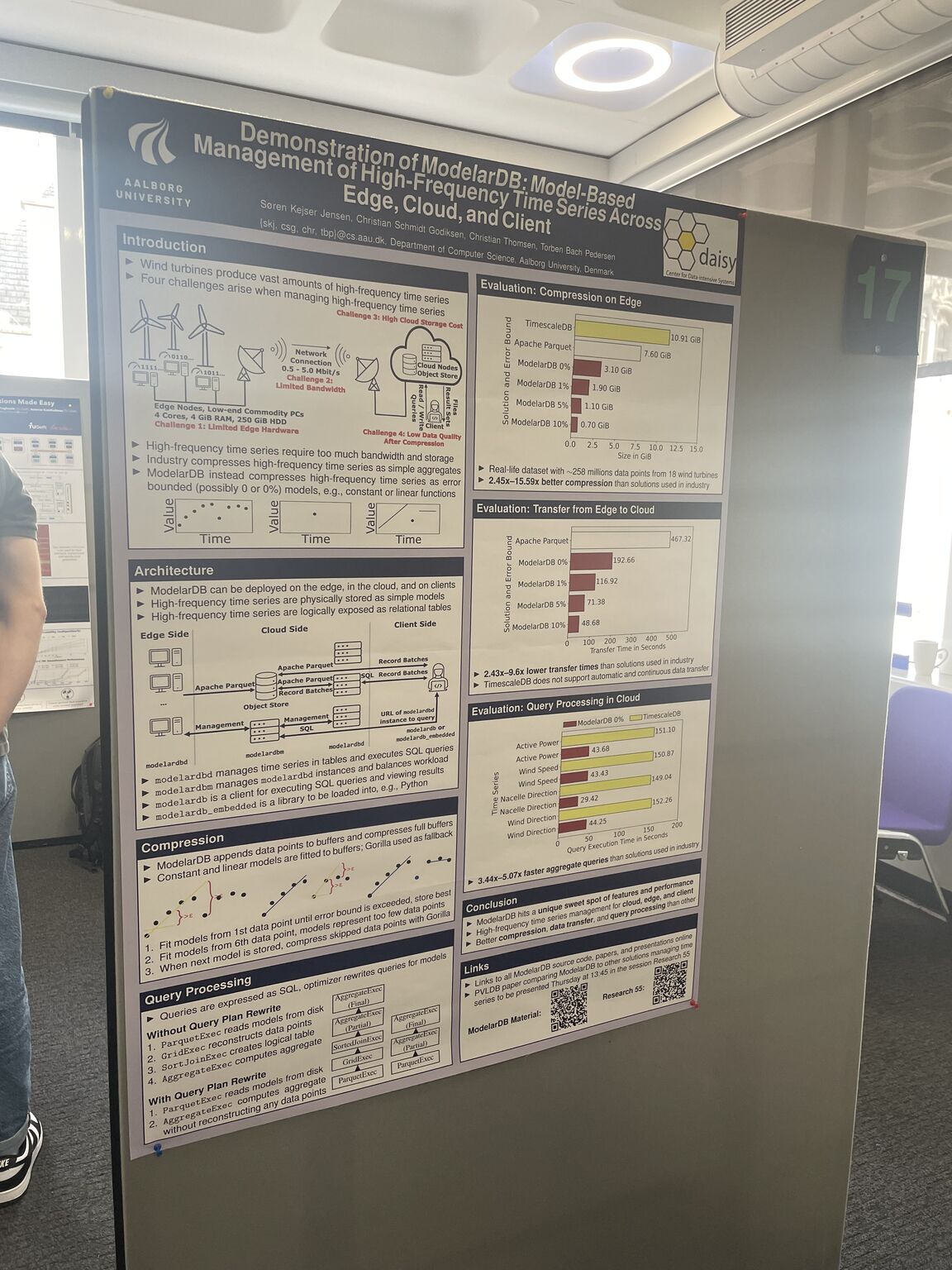
ModelarDB demonstrated at VLDB 2025 in London
A demonstration of ModelarDB was presented in the 51st International Conference on Very Large Data Bases in London, United Kingdom, September 3, 2025. Our AAU team did a great work : special thanks to Abduvoris Abduvakhobov, Søren Kejser Jensen, Christian Schmidt Godiksen, Christian Thomsen and Torben Bach Pedersen. Demo Title: Demonstration of ModelarDB: Model-Based Management of High-Frequency Time Series […]
-

6G-XCEL Featured in the Smart Networks and Services Joint Undertaking (SNS JU) Journal 2025
Thrilled to share that 6G-XCEL, our groundbreaking SNS JU project, has been spotlighted in the latest SNS Journal 2025, a flagship publication presenting 79 R&I and trial projects at the forefront of Europe’s 6G vision: https://smart-networks.europa.eu/sns-journal-2025/#sns-journal-2025-catalogue/160/What makes 6G-XCEL unique?#1 Global Innovation: Through a transatlantic research coalition, we’re developing the DMMAI framework—a decentralized, multi-party, multi-network AI system […]
-
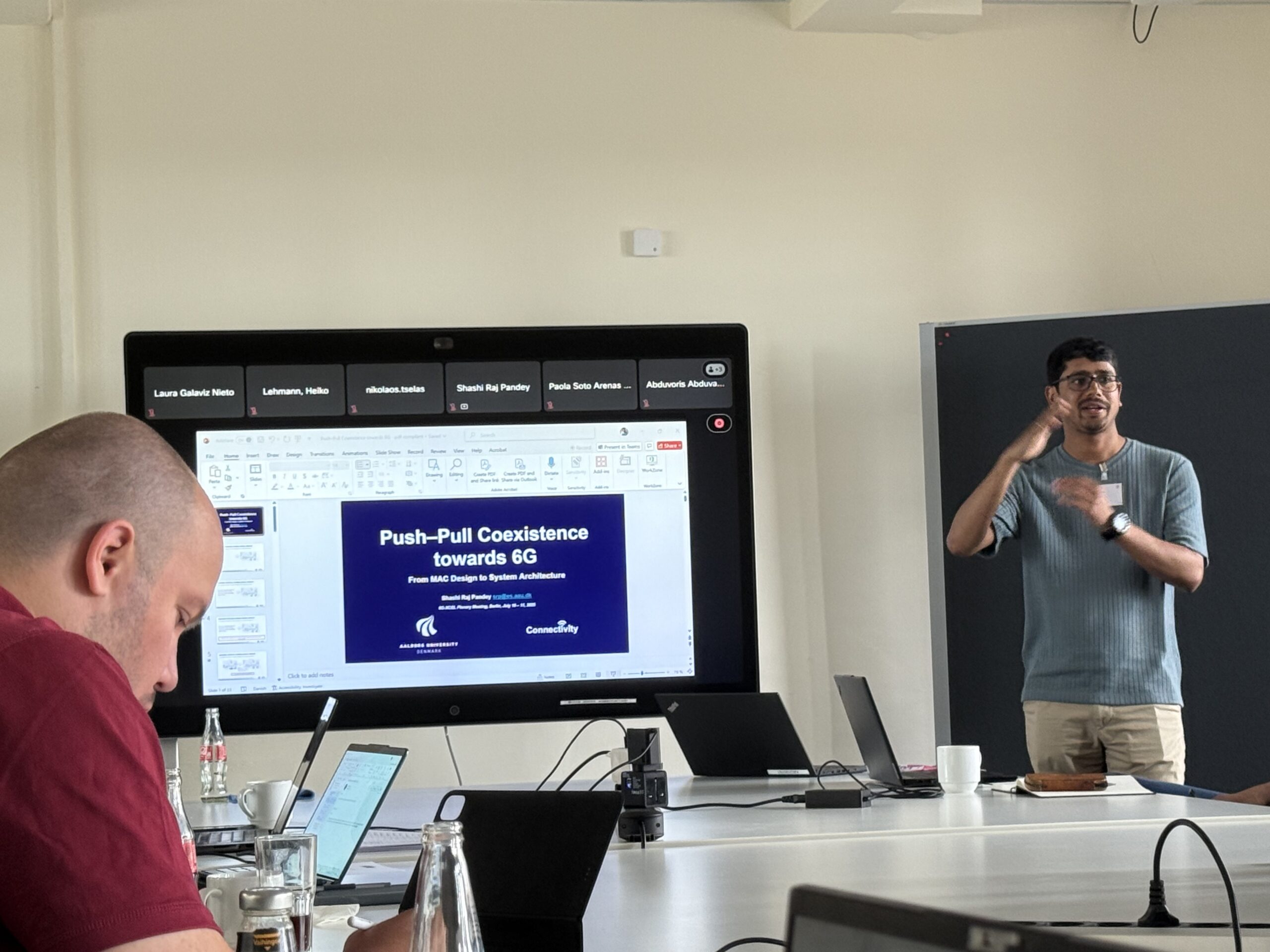
Strengthening Transatlantic Research Collaborations in 6G
The 6G-XCEL project continues to foster deep academic exchange and innovation through international collaborations with leading U.S. institutions and researchers. 🎓 As part of our ongoing dialogue with the global research community, recent presentations showcased groundbreaking work from both EU and US partners: 1. Shashi Raj Pandey (AAU) presented “Push–Pull Coexistence towards 6G: From MAC Design to System […]
-
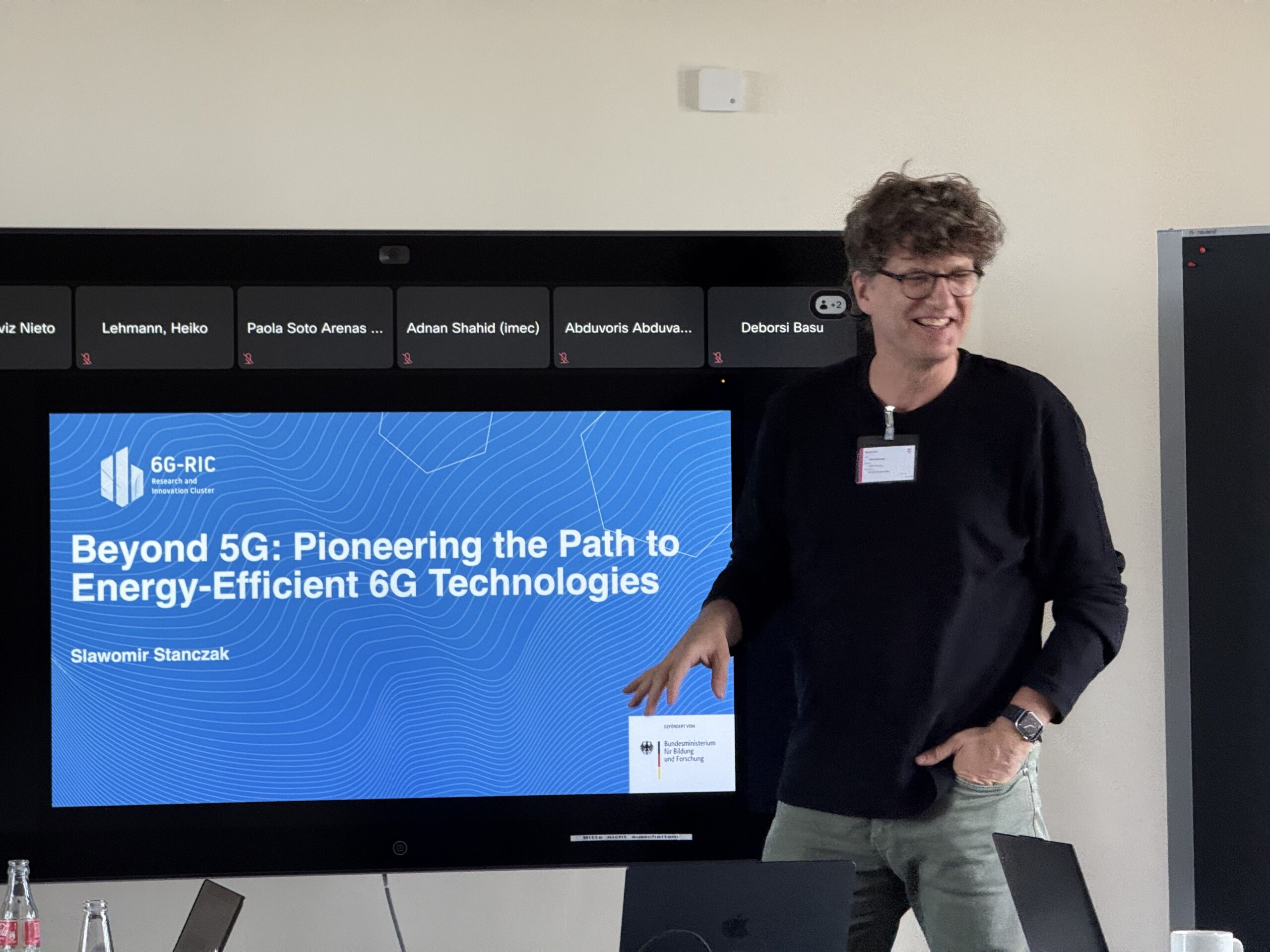
Beyond 5G: Pioneering the Path to Energy-Efficient 6G Technologies by Prof. Dr.-Ing. Slawomir Stanczak
The 6G-XCEL consortium had the pleasure of hosting Prof. Dr.-Ing. Slawomir Stanczak, Professor at TU Berlin and Head of the Wireless Communications and Networks department at Fraunhofer HHI, for a powerful and forward-looking presentation. His talk, titled “Beyond 5G: Pioneering the Path to Energy-Efficient 6G Technologies”, explored the transformative potential of 6G RIC / xGRIC architectures and the crucial role of energy efficiency, AI-native design, and intelligent network control in […]
-
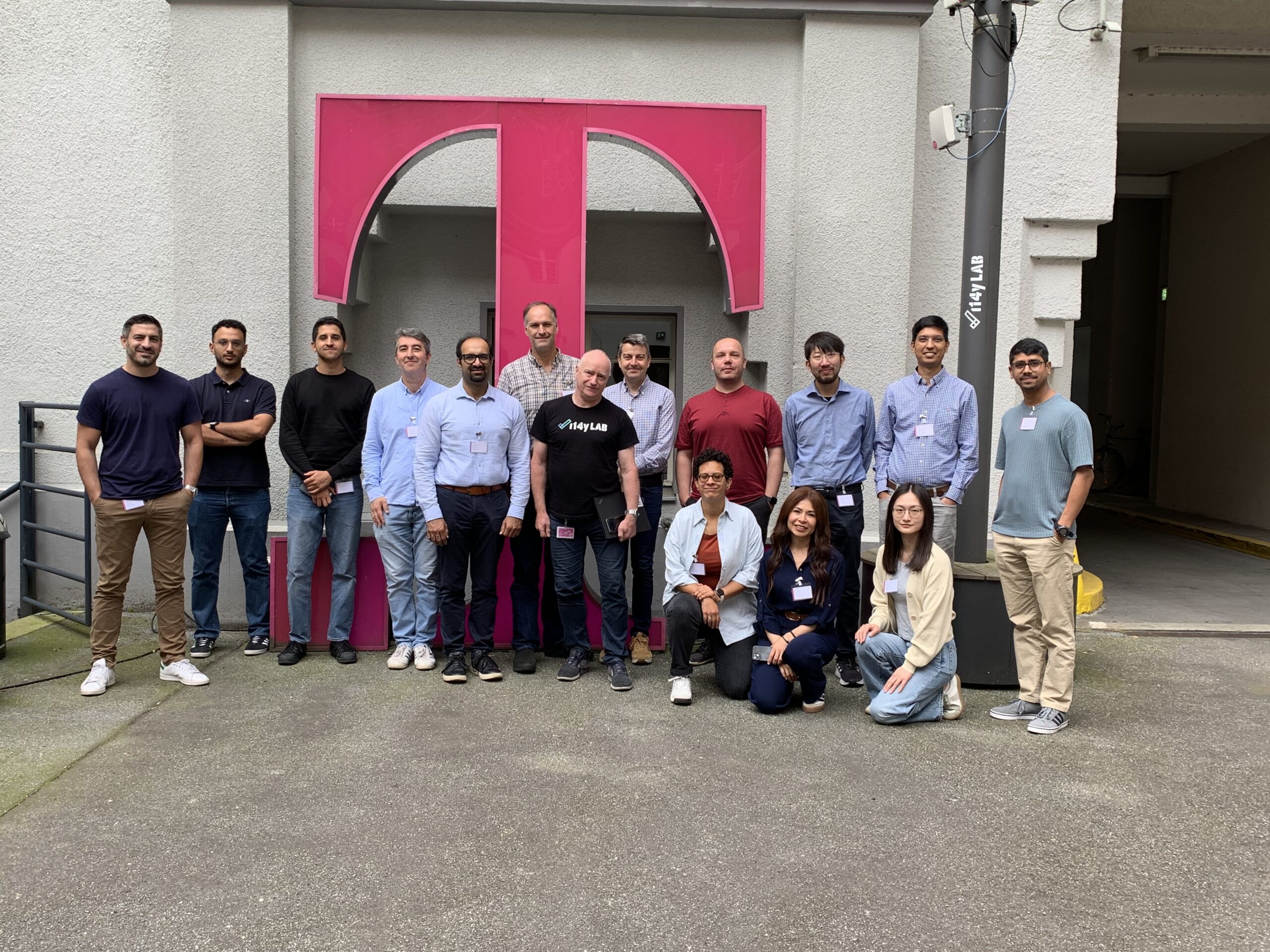
i14y Lab Tour- 6G-XCEL exploring innovation
On Friday, July 11th, the 6G-XCEL consortium partners had the unique opportunity to visit i14y Lab—one of the first Open Testing & Integration Centers (OTICs) of the O-RAN Alliance.During the visit, we were guided through the lab’s impressive history, learned about its pioneering role in open RAN testing and certification, and toured both indoor and outdoor test facilities where cutting-edge O-RAN vendor equipment is validated.This visit reinforced […]
-
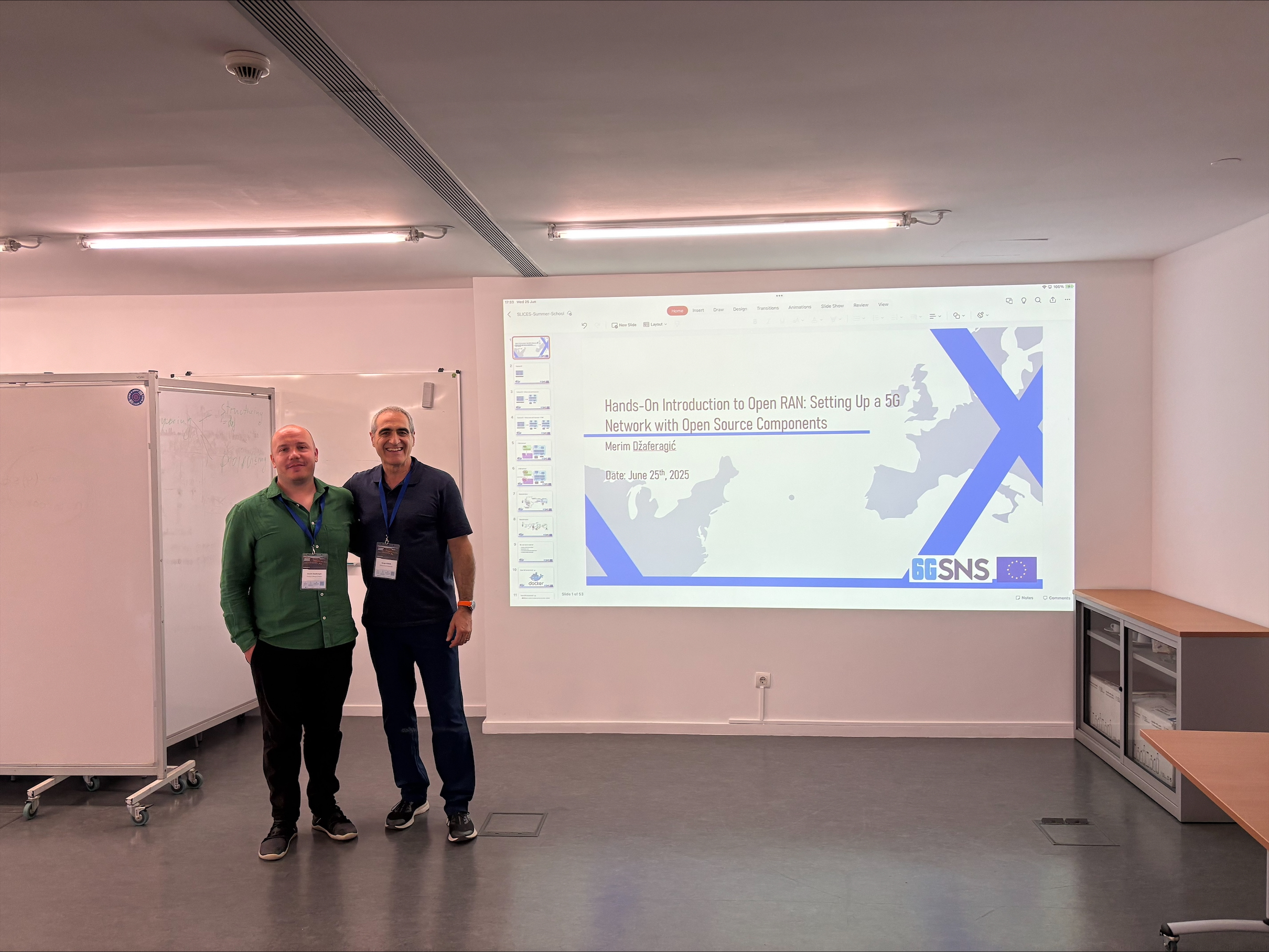
SLICES-RI / CONVERGE Summer School – June 2025
Hands-On Introduction to Open RAN: Setting Up a 5G Network with Open Source Components by Merim Dzaferagic This week June 25–27, 2025, students in SLICES-RI / CONVERGE Summer School participated in hands-on workshop where they managed to: Goal was to give a practical, end-to-end perspective on Open RAN and 5G systems — not just theory, but actual […]
-
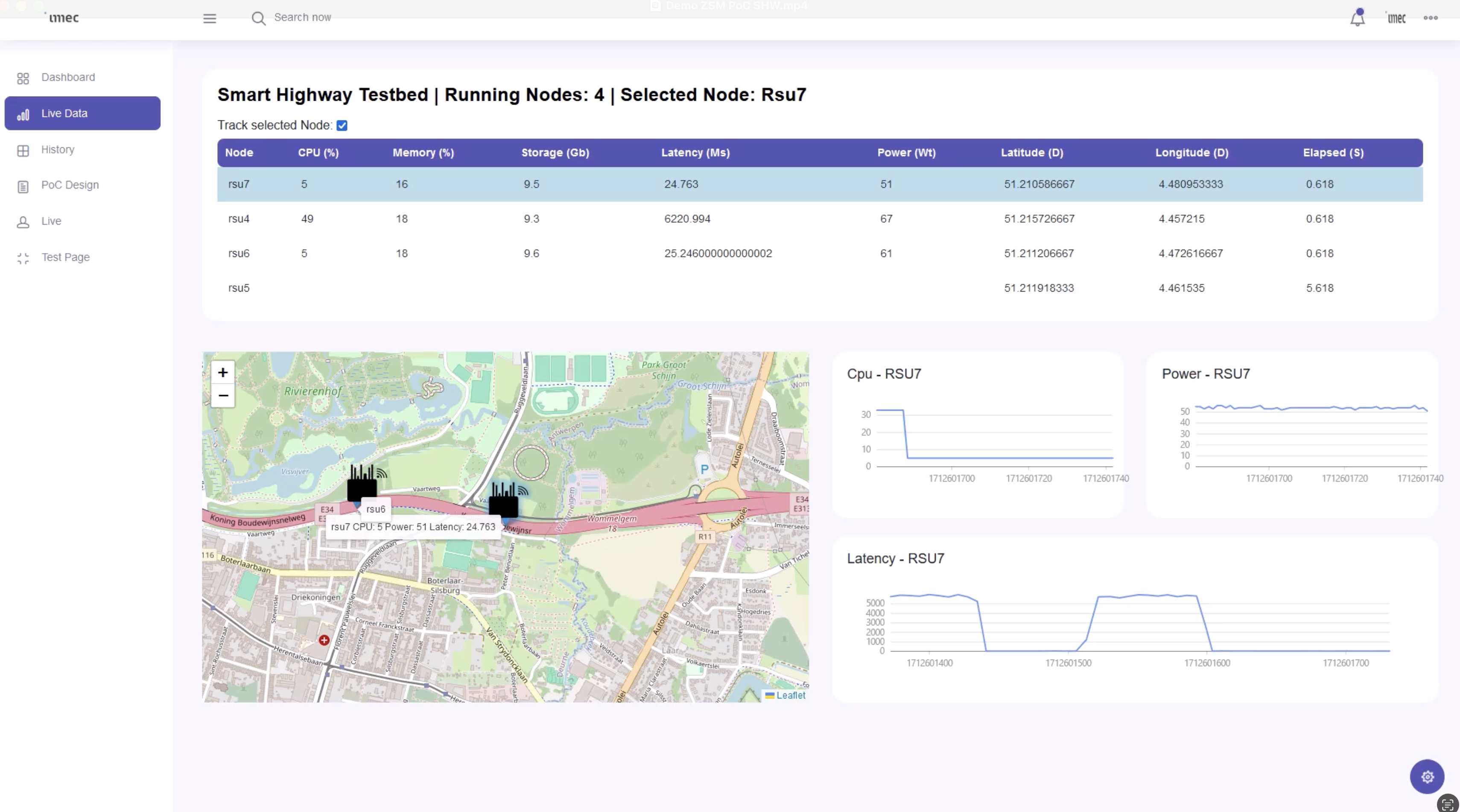
EuCnC Demo on AI-based Zero Touch Management Systems in 6G
At the 2025 EuCNC & 6G Summit, a live video demo showcased the capabilities of the Zero-Touch Service Management (ZSM) framework developed by IMEC in the context of smart highway environments. The demo illustrated how ZSM autonomously manages network resources to ensure optimal performance for critical applications like traffic management, vehicle-to-everything (V2X) communication, and real-time […]
-
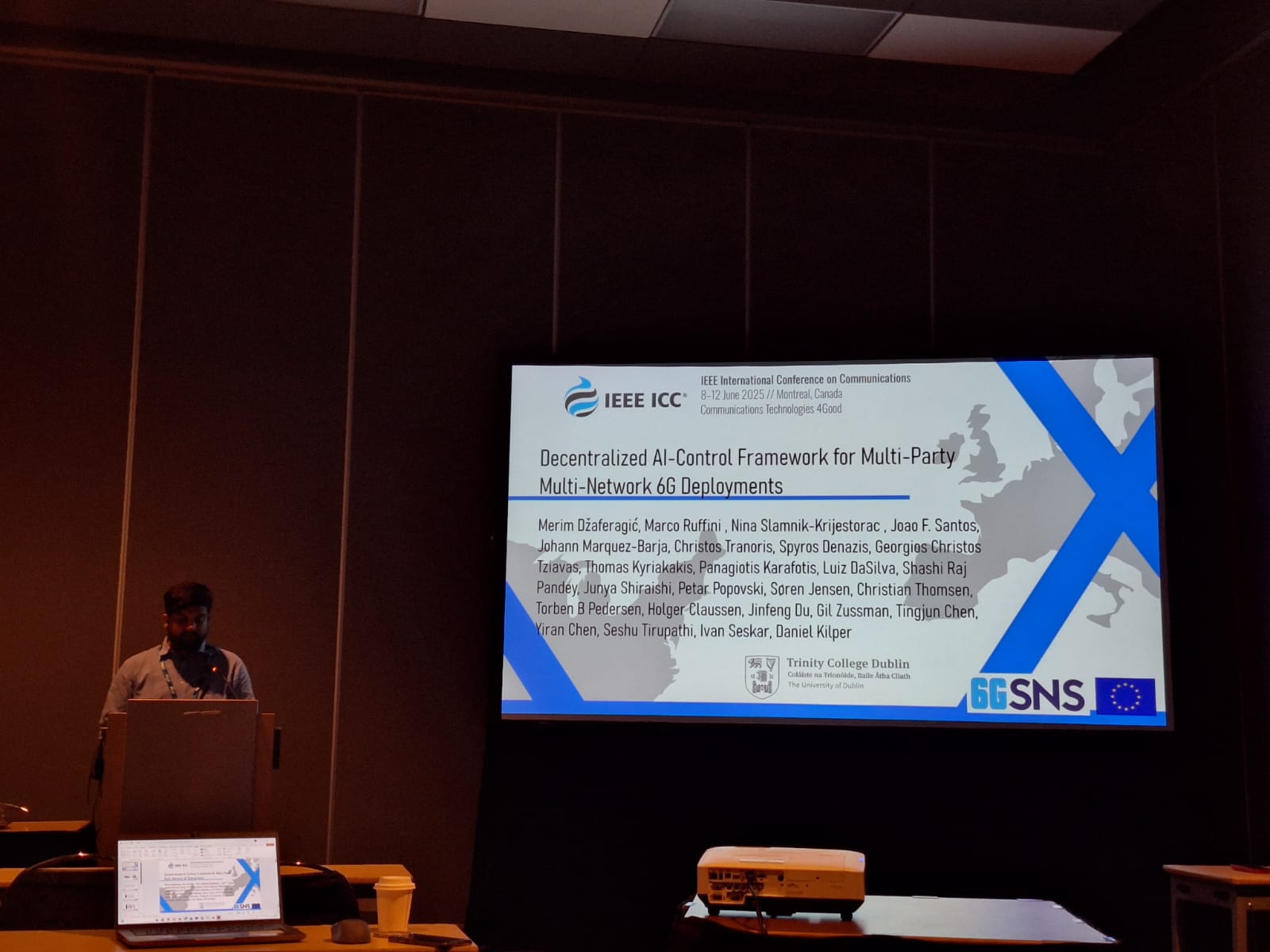
IEEE International Conference on Communications 2025 – 6G-XCEL Papers Presentation
6G-XCEL team participated in : IEEE International Conference on Communications 2025 on 8–12 June 2025 in Montreal, Canada. The team presented two papers as described by TCD team below:
-
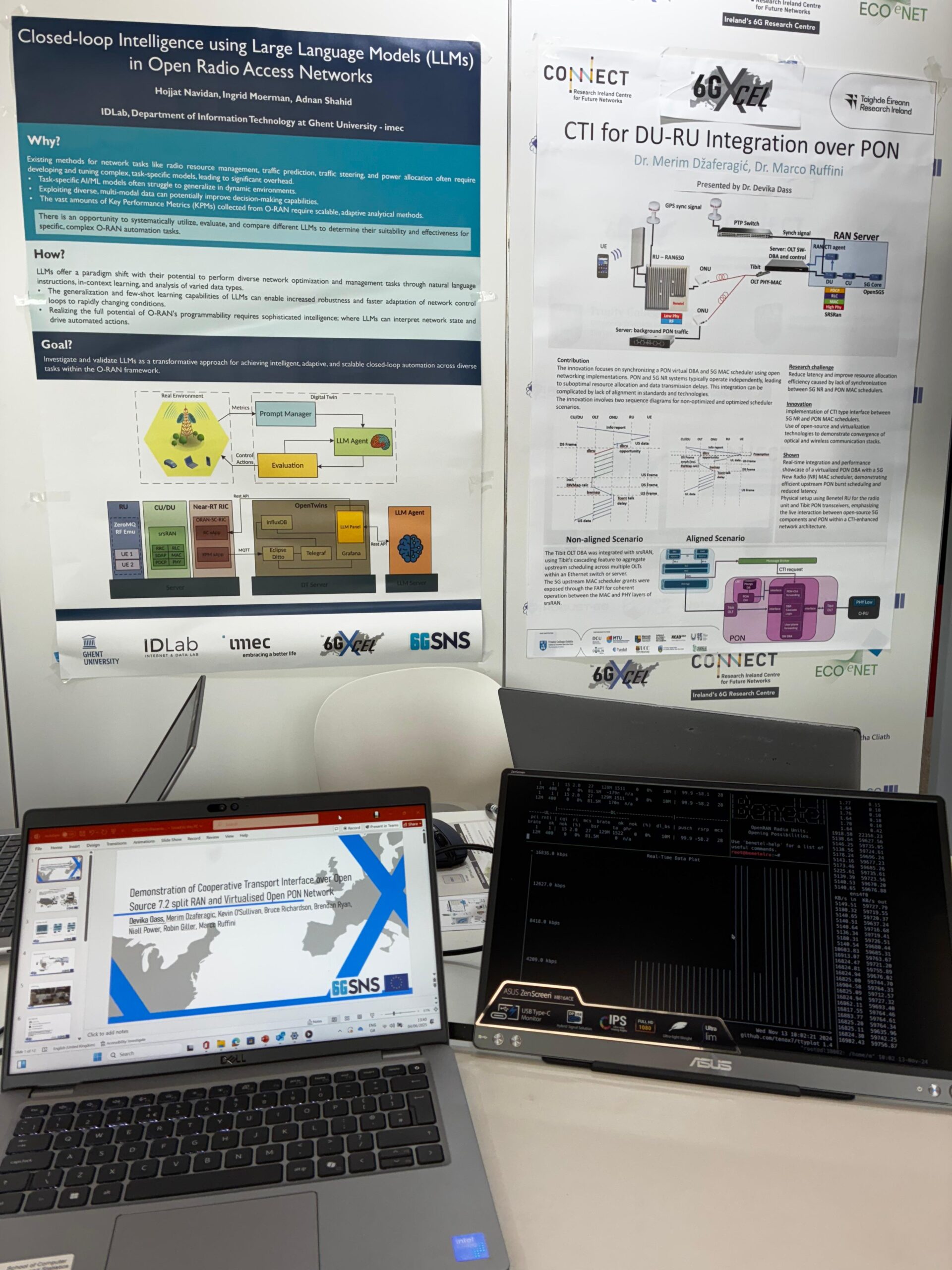
EuCnC Demo on Cooperative Transport Interface over Open Source 7.2 split RAN and Virtualised Open PON Network
This demo is part of the 6GXCEL project and showcased the real-time integration of 5G New Radio (NR) and a virtualized Passive Optical Network (PON) system. An optimized scheduler is employed to reduce latency and improve resource allocation efficiency. The implementation leverages open-source and virtualization technologies to demonstrate convergence of optical and wireless communications. Thanks […]
Objective
1
Investigate and design a framework for decentralized, multi-party, multi-network AI for the control of 6G networks.
2
Determine achievable time scales for DMMAI in real time, near-RT, and non-RT control loops.
3
Develop efficient and scalable advanced AI methods for large scale time series data in decentralized multi-party, multi-network control.
4
Investigate methods to address the security and privacy of multi-party, multi-network AI network control for DMMAI in 6G.
5
Determine energy efficiency of DMMAI for 6G and methods for its study.
6
Create a flexible DMMAI framework that can be used with different AI orchestration platforms in the EU and US.
7
Establish a community of excellence in research on Networks & AI spanning the EU and US to provide foundation for its use in 6G.





